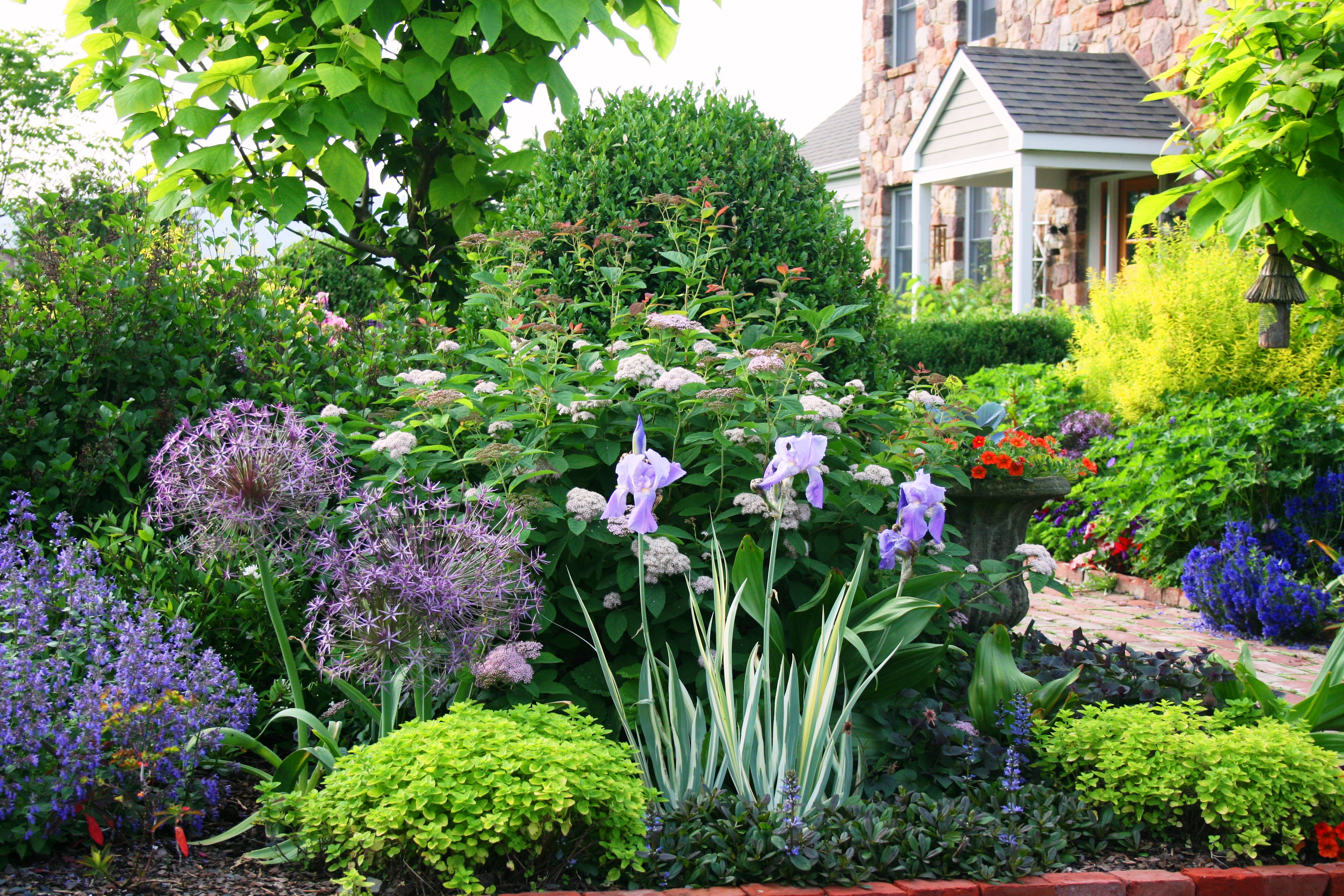Garden designer P. Allen Smith shared with us some solutions you can whip up in your kitchen. He says they're cheaper than commercial pesticides and much easier on the environment.
He also gave us his secret for promoting blooms on rose bushes, using another item you may have in your kitchen.
Smith says chemicals purchased at a garden center will kill anything in their path, and nothing you can make yourself will be as effective. However, by mixing up some common organic and cheap household products, Smith says you can take care of many types of bugs and fungus without hurting plants, pets, the environment or yourself.
Spray Those Plants
When getting rid of pests, Smith tries to use an approach that will have a low impact on the environment. This means he avoids chemicals whenever possible. The first defense he always tries is simply hitting the plant with a hard burst of water in hopes of knocking off bugs. If that doesn't work, he then sprays with the solutions listed above. Chemicals are always a last resort.
Before spraying, make sure the plant is well hydrated. If you are spraying houseplants, you may want to set the plant on a plastic bag. Early morning is the best time to spray, Smith says.
Home gardeners tend to make one big mistake when spraying plants: They often spray only across the top of the plant. Smith says it's essential to get under the leaves where most insects thrive.
Here are a few common pests and some remedies for them that Smith demonstrated on The Saturday Early Show:
Aphids: There are thousands of types of aphids - tiny pear-shaped insects that suck plant sap and weaken the plant. These pests are drawn to new growth and are typically found along stems or on the underside of leaves. Smith says they are quite "social" and are always found in clusters.
Plants infested wi th aphids will have curled and deformed leaves. You may also notice a sticky sap on the surface of the leaves.
Smith gave us this recipe for a solution that you can spray on a plant to help combat aphids:
Make a solution of:
1 tablespoon of dishwashing liquid
1 cup of vegetable oil
Dilute:
1 tablespoon of the solution in 1 cup of water
Mealy Bugs: These bugs are white, soft-bodied insects that suck plant juices. They are normally Sprinkler System Installation found where leaves join stems or along leaf http://www.diynetwork.com/how-to/outdoors/landscaping veins. Mealy bugs cause a plant's leaves to turn yellow and drop.
Because the insects have a waxy coating designed to protect them from predators, they can be resistant to liquids and thus hard to get rid of, says Smith.
Smith's homem ade solution to combat these pests :
Mix together:
1 part rubbing alcohol
3 parts water
Smith suggests you test this solution on a small area of the plant and wait 24 hours before spraying the entire plant because some plants are sensitive to alcohol.
Black Spot: This is a fungus that attacks roses, particularly in humid weather or climate. Once leaves are damaged they can't repair themselves. But, Smith says, it is possible to prevent the problem from spreading by spraying the plant with the following solution:

Mix together:
1 teaspoon baking soda
1 tablespoon dormant oil
1/2 teaspoon insecticidal soap or dish soap
1 gallon of water
While baking soda is the essential element of this recipe, the oil helps it stick to the leaves and the soap helps distribute the oil particles, according to Smith.
< br>Bananas and Roses
Smith says he always buries banana peels in the ground before planting his roses. The peels are loaded with potassium, phosphorus and magnesium, elements that contribute to vigorous growth. He suggests chopping up two or three peels and placing them in the hole before adding more compost and the plant. You can continue to add peels to the soil around the flower all summer long.
Coffee Grounds
According to Smith, those old, used coffee grounds actually are good for something. They can provide your soil with nitrogen. Sprinkled in your garden, the grounds act as a mild, slow-release fertilizer - similar to fallen leaves decomposing.
Smith suggests spreading the coffee grounds thinly because big clumps of wet grounds can get moldy. They are even more effective when composted first. Compost adds a great humus texture to the soil. Remember that not all plants like the acid in coffee grounds, but vegetables, azaleas and conifers are all good bets.
Egg Shells
Crushed egg shells add calcium to the soil, says Smith. You Sprinkler Installation Denton often hear of people putting lime (calcium carbonate) into their gardens, but egg shells also will work. Calcium is essential for cell growth in all plants, but growing plants quickly deplete the surrounding soil of calcium. Smith recommends washing the shells or composting them before placing them in the garden. Otherwise, you might attract unwanted animals to your yar d.
2003 CBS. All rights reserved.
http://www.cbsnews.com/news/household-products-for-the-garden/
No comments:
Post a Comment